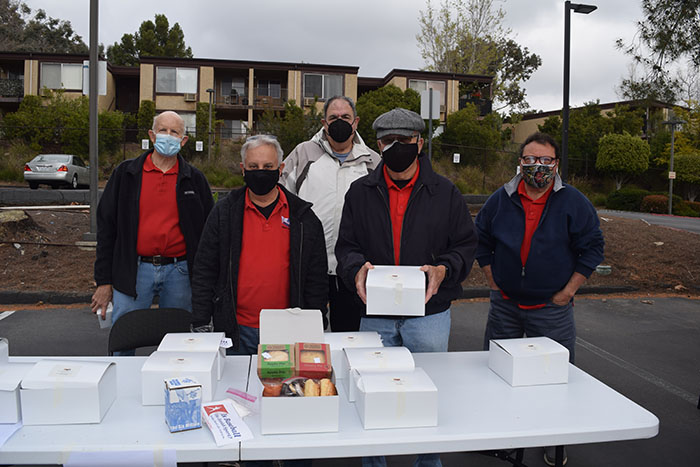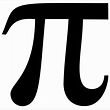
By Donald H. Harrison

 SAN DIEGO — Initially, the event on Sunday, March 14, was advertised by the Tifereth Israel Synagogue Men’s Club as a lox and bagel brunch, during which members could gather by Zoom and discuss how the coronavirus pandemic affected them, and what they look most forward to when it is over. Members were invited to drive to the synagogue’s parking lot, where a boxed lox n’ bagel meal would be waiting for them.
SAN DIEGO — Initially, the event on Sunday, March 14, was advertised by the Tifereth Israel Synagogue Men’s Club as a lox and bagel brunch, during which members could gather by Zoom and discuss how the coronavirus pandemic affected them, and what they look most forward to when it is over. Members were invited to drive to the synagogue’s parking lot, where a boxed lox n’ bagel meal would be waiting for them.
As my wife Nancy had some errands to run in the neighborhood of the synagogue, she volunteered to pick up the boxed brunch. Inside of the box were two individual fruit pies — one apple, another cherry — in addition to the advertised lox, bagels and cream cheese. How come? “It’s pi day,” explained Bram Rubinstein, a Men’s Club member.
If you divide the circumference of a circle by its diameter, the result is a never ending number that begins with 3.14 and even to today has never been computed to a final integer, even though mathematicians have worked out the value of pi to over a million decimal places. In celebration of March 14th, which is often notated 3/14, fun-loving academicians celebrate “pi” day, which they conflate with the word “pie,” so that having some sort of pie on pi day has become a staple of the celebration.
The pies inside the single-serving boxes were round, which was something of a disappointment because as any mathematician might tell you pies are squared, at least when computing the area of a circle, per the formula A=Π r2 .
From my perspective Pi day also is a minor Jewish holiday, as on the 14th of March in 1879, none other than Albert Einstein was born, and he was not only a wonderful mathematician and physicist, he also was a proud Jew, peace advocate and Zionist. He was offered the opportunity to serve as president of Israel, but he turned that honor down, having made his home at Princeton University in New Jersey. after coming to the United States as a refugee from Nazi Europe.
There is a story about Einstein that I’ve always liked, although it is probably apocryphal. The Nobel Prize laureate had won the world’s acclaim as a genius as a result of his theory of relativity and his postulation that energy equals mass times the speed of light squared (E = mc2). So, when he arrived at Princeton, administrators fussed all over him. “Anything you need for your work, Professor Einstein, just tell us and we’ll get it for you!” they promised excitedly. Einstein considered their offer for a moment, and responded “Would you have a piece of paper and a pencil?” The acclaimed physicist didn’t need much more.
The Albert Einstein College of Medicine in New York has an annual challenge: whoever can cite as many numbers past pi’s decimal point from memory wins. According to the medical college’s website, “Srinivas Aluri, an associate in molecular pharmacology, is our current champion from past Pi Day competitions; he recalled 120 digits in 2019, surpassing then medical student Elisa Karp’s recitation of 106 digits the year prior. Another medical student, now alumna Amy Kang was the inaugural champ, reciting pi to the 67th decimal place.”
Let’s see. It’s 3.1415 ur, well, never mind. I bow to Srinivas.
San Francisco’s Exploratorium claims the original connection to Pi Day. According to its website, “Every year on March 14—Albert Einstein’s birthday—number lovers can raise a piece of pie to Pi (π) Day, an international celebration of one of math’s most famous constants: the irrational, never-ending number π, pronounced pi (3.14159 . . .). Exploratorium physicist Larry Shaw invented the playful celebration in 1988, and Congress declared it an official U.S. national holiday in 2009. The San Francisco museum continues its annual festivities with an all-ages Pi Day celebration on March 14…”
Among other traditions, the Exploratorium has a pi procession, in which people bearing poles with numbers from pi circle a pi shrine 3.14 times. Another exercise is to write a pi-ku– a haiku poem about pi.
Yet another tradition at the Exploratorium is to join in a rousing chorus of “Happy Birthday” to Albert Einstein.
*
Donald H. Harrison is editor of San Diego Jewish World. He may be contacted via donald.harrison@sdjewishworld.com
A terrific and entertaining article like this is ALWAYS better than another Trump- bashing exercise. Thank you!